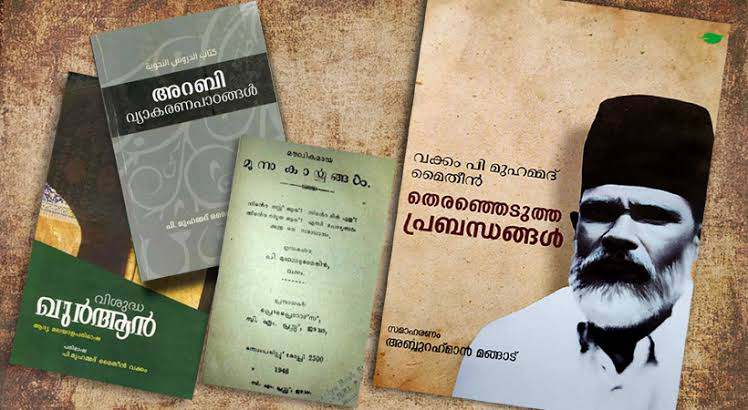Vakkom P. Muhammed Maitheen: The Forgotten Torchbearer of Malayalam Translation of the Quran

In the vast and diverse area of Indian Islamic studies, there are some individuals who stand out even though time has concealed them. Vakkom P. Muhammed Maitheen is one of them. He was a linguist, a thinker, and a translator who created history by translating the Holy Qur'an into Malayalam for the very first time. His grand achievement, though not appreciated enough during his time, has immensely influenced the Muslim community in Kerala for centuries.
This article considers the life and legacy of Muhammed Maitheen. It illustrates how his work of translation enabled Malayalam-speaking Muslims to relate to their religion. It also examines the social, political, and intellectual issues he encountered, and how his valuable work continues to influence the study of the Quran in the region.
Kerala's Islamic Intellectual Tradition
Kerala is situated on the south-western coast of India and has a thriving Muslim community. They trace their lineage to Arab traders and missionaries who had arrived a few years back. They have a rich tradition of Islamic scholarship, and mosques and madrasas play a pivotal part in defining their religious and cultural identity.
But prior to the mid-20th century, few Malayali Muslims were literate in Arabic and could not make the Qur'an readable. Although there were oral teaching, sermons, and the usual Tafsir, there was no complete translation of the Qur'an into Malayalam that could connect the scripture to the everyday language.
It was against this background that Muhammed Maitheen came forth as a singular thinker who possessed linguistic eloquence, religious piety, and unyielding commitment to educational reform.
Early Life and Challenges
Maitheen was born at Vakkom, a village in the Thiruvananthapuram district. He was brought up in a culture that appreciated Islamic traditions. He was extremely proficient in languages, literature, and religious studies since his childhood. He was compelled to discontinue his studies due to tuberculosis, which forced him to withdraw from the Government Arts College in Thiruvananthapuram.
This failure, nonetheless, didn't discourage him. Instead of giving up because of his illness and anonymity, Maitheen looked within himself and engaged in a phase of rigorous self-learning. He studied Arabic, Urdu, English, and Sanskrit, not just the Qur'an, but religious literature as well, literature, and modern ideas. He showed the spirit of self-education, not letting his situation define him.

The Quest for Translation
For Maitheen, the Qur'an's translation into Malayalam was not mere words, but a religious endeavour. He believed that every Muslim, regardless of how proficient they were in Arabic, should be able to access the divine word in its original state. He began his work on his translation during the early 1950s, thoroughly reading every verse and making sure each verse was clear, precise, and meaningful.
The translation had been completed in 1953—years ahead of any other prominent Malayalam translations. But, owing to lack of finance, organizational support, and perhaps the puritanistic religious outlook of those days, his manuscript remained unpublished for decades.
He largely avoided the public eye at this time, but he continued to study and was familiar to a small circle of intellectuals and religious reformers. He was unknown not because his work was not sufficiently good, but due to the political and institutional difficulties independent scholars faced.
Rediscovery and Posthumous Credit
Muhammed Maitheen's efforts began to receive attention during the early part of the 21st century. In 2009, over half a century since he completed the manuscript, the University of Kerala brought out his translation of the Qur'an. The edition was appreciated by scholars and religious leaders alike for its accuracy, good presentation, and readability.
This belated acknowledgment raised serious questions: Why did the publication of such a seminal work take so long? What does this reveal about the power and epistemological structures of India's Islamic institutions?
Maitheen's life illustrates the isolation of a reformer. A reformer is a person who is ahead of time, doesn't want to compromise on what he believes in, and does everything hard without expecting recognition.
Contributions to Language and Education
Maitheen was more than just a translator. He enjoyed writing, thinking, and opining on culture and education. He was deeply influenced by Islamic modernists such as Sir Syed Ahmed Khan. He was of the view that the future of Indian Muslims depended on enhancing education, scientific thinking, and spiritual purity.
His work indicates that he knows contemporary times pretty well, and he used to say that religious and secular education must be blended together. He also discussed dialogue between various religions, social reform, and the significance of moral education in public life.
His writing, though largely unpublished or disseminated in journals, is fertile ground for scholars interested in Malayali Muslim reformist intellectual endeavors.
The Politics of Translation
Translation of the Qur'an is not a neutral art. It involves decisions on interpretation of the text, linguistic nuances, and religious beliefs. Maitheen's translation is remarkable due to its balanced approach. He avoided radical literal translations and radical modern revisions. His goal was to be readable—faithful to the Arabic but natural to a Malayalam reader.
His writing was unlike subsequent translations that were more frequently than not colored by beliefs of a group. Indeed, Maitheen's translation was consciously neutral, and perhaps that is why it was not received so well in a religious environment that was increasingly polarized by beliefs.
It is this neutrality that makes his translation significant at a time when calls for non-sectarian and inclusive religious instruction are growing.
Heritage and Contemporary Relevance
Nowadays, Muhammed Maitheen's translation is being rediscovered. His translation has come out again in electronic formats, discussed in seminars, and included in school textbooks. Most importantly, it has reached younger Malayali Muslims who seek a more intimate, personal connection with the Qur'an.
At a time of growing religious division, his legacy reminds us of integrity, modest dedication, and the power of words to unite us. His legacy inspires teachers, students, and reformers who do not see knowledge as a source of power but as a path to freedom.
Conclusion
Vakkom P. Muhammed Maitheen was not just a translator of the Qur'an but also a visionary who understood the power of religious knowledge to transform lives. By giving the Malayalam-speaking Muslim population their first full translation of the Qur'an, he made God's word available to all. His life, lived in illness, and subsequently remarked, indicates the enduring power of committed scholarship. As the world rediscovered forgotten voices and overlooked pioneers, Maitheen's tale needs to be told, retold, and known about—not just to recall him, but as a lesson in courage of mind and modesty of heart.

Comments
Post a Comment